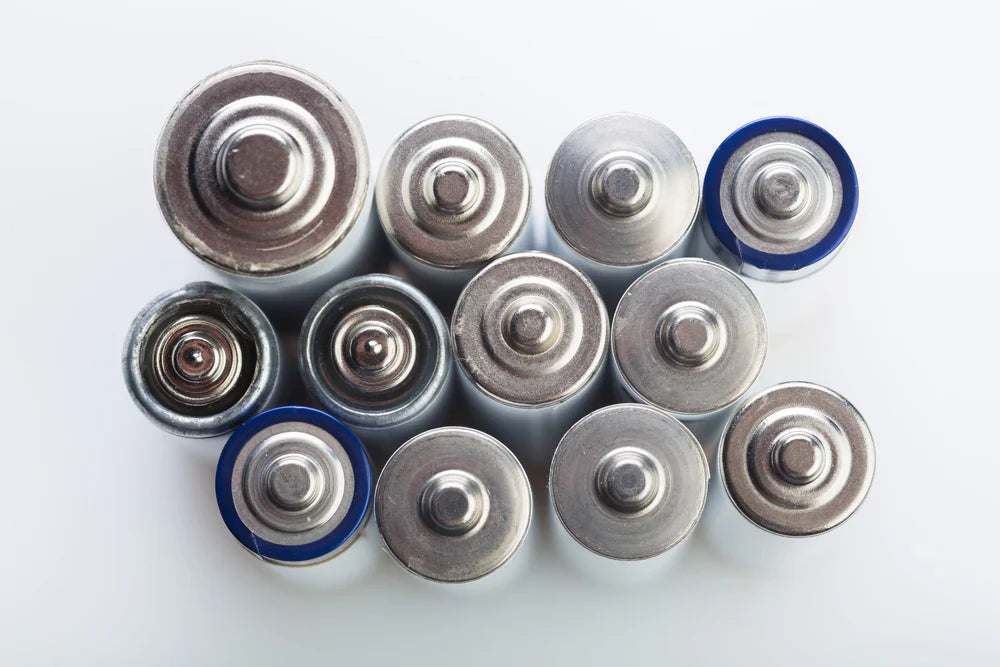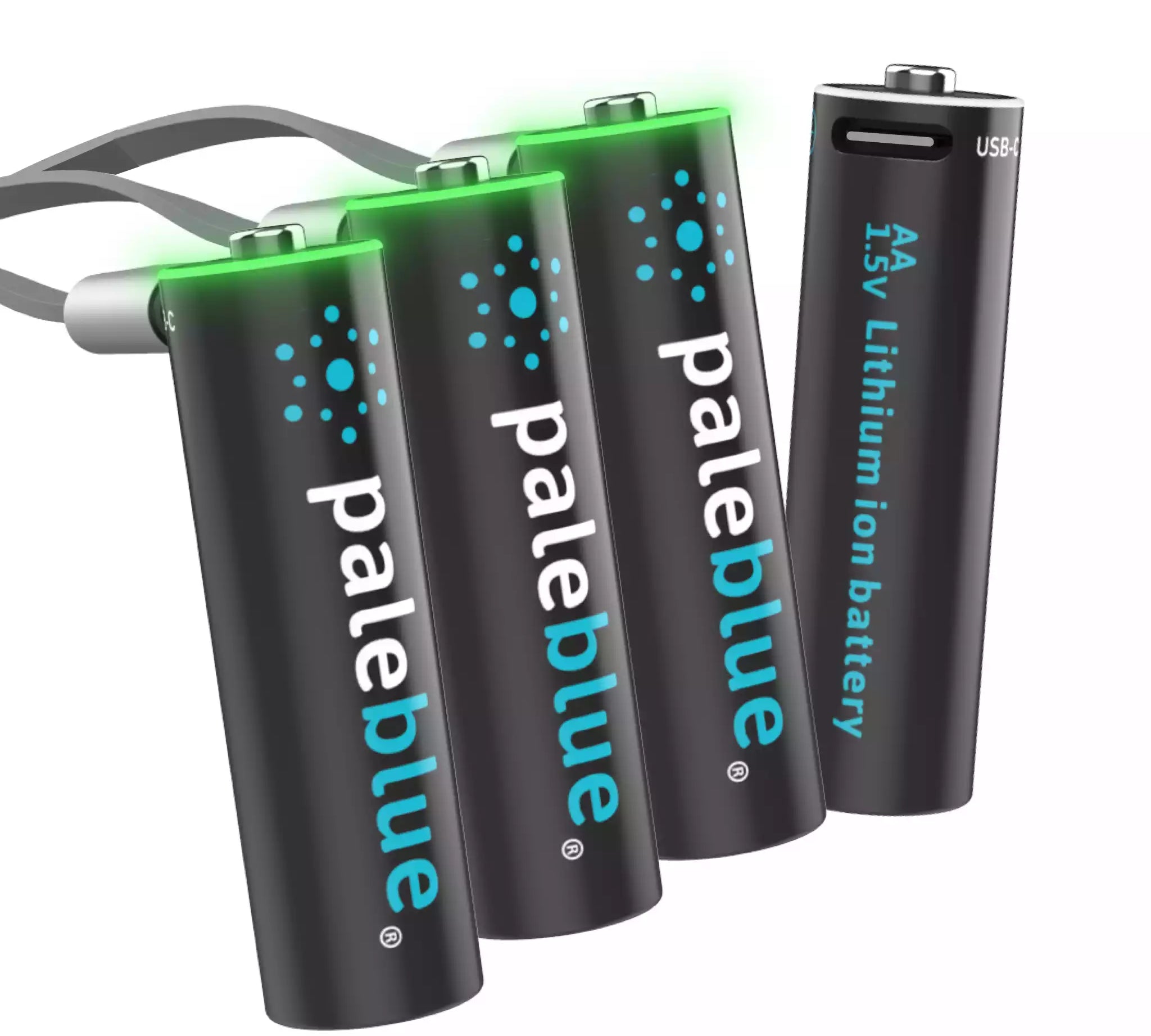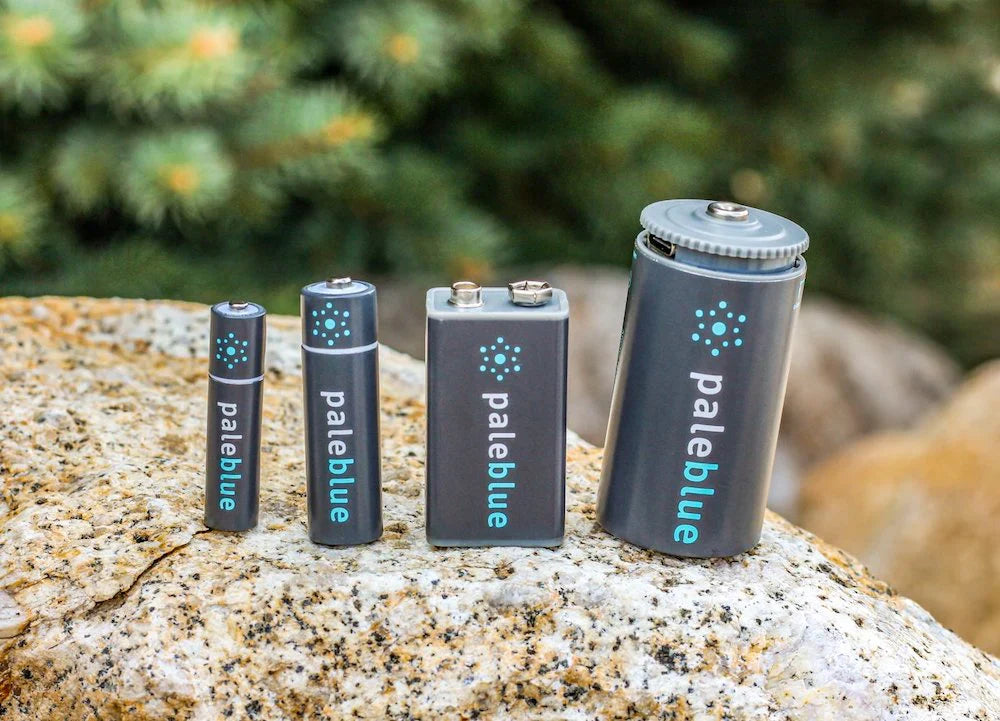The Unsustainable Impact of Alkaline Batteries

Single use alkaline batteries still dominate the market even though rechargeable options are available. Unfortunately, alkaline batteries impact our world in numerous ways. Many of their impacts are considered unsustainable. That is one of the reasons Paleblue encourages people to switch to reusable lithium-ion batteries.
According to the University of Illinois, American consumers purchase nearly 3 billion alkaline batteries annually. We use them to power our TV remotes, portable music players, flashlights, and so forth. Assuming one battery is discarded for each one purchased, we are throwing more than 8 million alkaline batteries into the trash every single day.
These statistics alone demonstrate just how much of an impact alkaline batteries have on our world. We could significantly reduce that impact by replacing them with reusable lithium-ion batteries.
Alkaline Batteries Go Into the Landfill
All those alkaline batteries that go into the trash can ultimately end up in a landfill. Alkaline batteries can be recycled, but there are not a lot of companies willing to do the work. Why? Because the most valuable materials found in spent alkaline batteries – manganese, steel, and zinc – are too costly and difficult to recover.
For the record, we want to be fair and recognize that modern alkaline batteries are not considered hazardous waste by the EPA. They also are not considered toxic by the EPA, although the EU and California do require them to be handled as hazardous waste. Prior to 1996, alkaline batteries were problematic because they contained mercury – a toxic substance proven dangerous to the environment. But thanks to the Mercury-Containing and Rechargeable Battery Management Act (Battery Act) 1996, mercury is no longer a component of single use batteries.
Nonetheless, alkaline batteries will often end up in landfills where their constituent chemicals could potentially leech into groundwater. They also hang around for an awfully long time. For those that get recycled, there isn’t a very effective and energy efficient way to do this, so wouldn’t it just be better to use a reusable solution instead of single use alkalines?
Alkaline Batteries Are Wasteful
The Battery Act addressed the problem of toxic mercury leaching from alkaline batteries into the environment. But it did not address the wasteful nature of these single use products. And rest assured that alkaline batteries are wasteful in more ways than one.
In terms of resources, battery manufacturers invest in tons of manganese, steel, and zinc to manufacture their products. Those are natural resources that are tough to replace. And what happens to those resources once batteries die? They hopefully get recycled, but certainly many end up in landfills.
It also takes power and other resources to manufacture alkaline batteries. Given that billions of them are produced every year, alkaline batteries represent a lot of resources that could be devoted to other things. We could actually save energy by producing fewer alkaline batteries. The best way to do that is to switch to a modern reusable solution such as lithium-ion batteries.
Of course, there is also the matter of personal waste. It is true that alkaline batteries cost a lot less at the cash register. But you have to buy them more frequently. Lithium-ion batteries cost more, but you can charge them over and over again. You end up spending less in the long run, and in fact you can generally start saving money after 4-5 recharges compared with buying name brand alkalines.
The Paleblue Alternative
It should be clear that alkaline batteries are having a significant and unsustainable impact on our world. Paleblue offers an alternative. We offer lithium-ion batteries that are rechargeable by way of any standard USB port. Our batteries:
- can be charged 1000+ times
- pay for themselves after four or five charges
- are lighter than alkaline and NiMH batteries
- can be charged in 1-3 hours for AAA, AA, and 9V. (5 hours for the D cells)
Alkaline batteries reached their peak years ago. It is time to move on. Reusable lithium-ion batteries are more sustainable, more convenient, better for the environment, and significantly less wasteful.
- Tags: Sustainability







